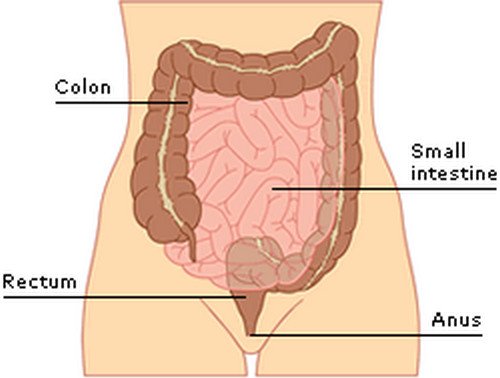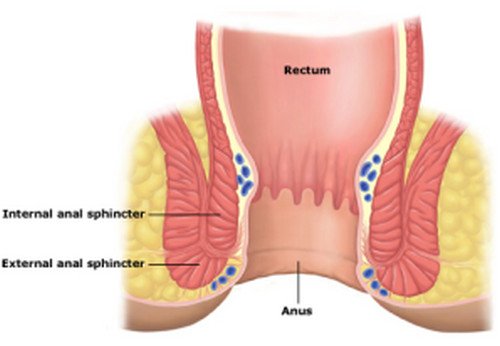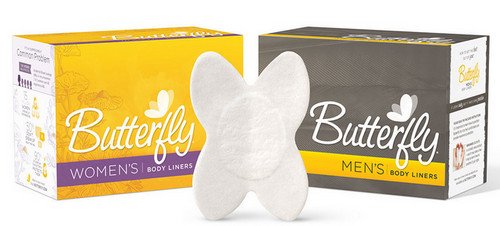Anal Leakage
Last reviewed by Dr. Raj MD on January 12th, 2022.
What is anal leakage ?
The anus is one of the few organs of the body that functions as a two system at the same time. The anus is a part of the digestive and excretory system. The anus means a circle or ring. It is located at the posterior most end of the alimentary canal.
Its primary role is to regulate the removal of waste and indigestible substance from the body. The anus is the opening for defecation and is linked with sexuality too.
However, the anus is also prone to certain medical conditions and one of which is anal leakage. It is a medical term for fecal incontinence. It is a condition wherein the feces uncontrollably leak out of the anus.
Some patients experienced a total loss of bowel control. Sometimes, it is not only leaking of stool but also includes other discharges like fluid that is mucus-like. In some instances, blood leaks out of the anus. Anal leakage affects both men and women, but the prevalence is higher in women, especially after childbirth. (2, 3, 4)

Image 1: Anatomy of the digestive tract outlining both the anus and the rectum.
Picture Source: www.aviva.co.uk

Photo 2: The anus, rectum, and the sphincter muscles.
Image Source: cdn-images-1.medium.com

Image 3: An exercise routine that can strengthen the sphincter muscles.
Photo Source: www.bodybuildingestore.com

Photo Source: A butterfly body pad worn between the buttocks to absorb fluids from anal leakage.
Picture Source: photos.prnewswire.com
Types of fluid that can leak from the anus
- Clear fluid – a slimy fluid discharge indicating inflammatory condition affecting the lower bowels.
- Watery – It is an indicator of a tear or fistula around the opening of the anus.
- Purulent – a discharge containing pus indicative of a lower bowel infection.
- Blood – it is an indicator or piles or hemorrhoids, but can be linked with malignancy.
- Fatty discharge – It happens when the stool contains excess fat.
- Fecal – it is indicative of bowel incontinence. (7)
What causes leaking from the anus?
- Damage to the sphincter – The muscles in the lower rectum can be damaged leading to accidental leakage of bowel. There are various reasons why the sphincter muscles get damaged such as trauma to the anal region, post prostate or rectal surgery, side effect of radiation treatment, and damage to the sphincter muscles after giving birth. When a woman gives birth, the sphincter muscles are stretched way too much causing damage to the muscles. In some instances, IBD (inflammatory bowel disease) may cause damage to the sphincter muscles.
- Diarrhea – Severe bouts of diarrhea may cause anal leakage, especially if the diarrhea is bacterial in origin. (3)
- Constipation – Can constipation lead to anal leakage? The answer is yes. If the stool is impacted, the colon and the rectum become weak and overstretched causing the fluid around the stool to leak. (4)
- Nerve problems – The anal sphincter is controlled by nerves. It is the nerve that instructs the muscles on how to function properly. If the nerve is damaged, the sphincter muscles won’t be able to function properly which increases the possibility of anal leakage. There are various types of nerve damage such as in the case of multiple sclerosis, diabetic neuropathy, stroke, and spinal cord injury. The habit of straining when pushing out bowels can also cause nerve damage. The nerve of the sphincter can be prone to damage during childbirth.
- Rectal prolapse – if the muscles in the rectum are severely damaged, there is a tendency that the rectum will protrude through the anus. There I a possibility of passing clear liquid from bowel through the protruding rectum. (5, 6)
- Rectal stiffening – a diseased rectum will not have the ability to stretch and hold stool. Eventually, a scar tissue will form causing the rectum to stiffen. It can no longer support large stools. What will most likely happen is that wet feces and fluids will leak out of the anus. Various conditions could lead to rectal stiffening. The most common ones are radiation damage, inflammatory bowel disease, and rectal surgery.
- Anal cancer – It is a medical condition in which the nerves and muscles of the anus are severely damaged. The function of the renal sphincter is impaired. The patient will not only notice clear discharge from bum after poo. He will also notice blood leaking out from the anus. Anal cancer is a life-threatening condition. (7, 8)
- Hemorrhoids/Piles – Do hemorrhoids leak? Yes! A bloody discharge coming out of the anus is an indicator that you have hemorrhoids. However, it should be carefully examined by the doctor to determine whether it is really hemorrhoids or some sort of malignancy.
- Keriorrhea – It is a condition characterized by leaking out orange to transparent greasy fluid from the anus. It is caused by too much consumption of indigestible fish oil.
Anal leakage symptoms
- Passing water from bowel
- Itching and burning sensation in the anal area
- Pain and discomfort in the anal region
- The patient feels the urge to defecate even after passing a bowel movement.
- The patient has a severe bout of diarrhea or constipation. (4)
Anal leakage treatment
How to stop anal leakage? The treatment option primarily depends on the underlying cause. Ideally, the treatment of choice includes topical and oral medication. If the condition is severe, then the doctor will recommend surgery.
For incontinence, the doctor will prescribe laxatives and antidiarrheal medications. If the cause of anal leakage is hemorrhoid, the doctor will prescribe topical hydrocortisone and oral pain reliever. For constipation, the doctor will order laxatives and other forms of stool softener.
For health conditions like gastroenteritis, inflammatory bowel disease, and irritable bowel syndrome, the doctor will order pain reliever, antibiotics, and anti-inflammatory and immunosuppressant drugs. The patient’s diet and lifestyle should be modified too.
Foods that cause anal leakage will be eliminated from the diet. This includes gas forming foods, spicy and fried foods, caffeinated beverage, milk products, especially for people with lactose intolerance. The patient is strongly advised to drink plenty of water to facilitate regular bowel movement. (4, 6, 9, 10)
How to prevent anal leakage?
- Modify your diet. You should increase your intake of fiber-rich foods to bulk up the stool.
- Strengthen the anal muscles by performing sphincter exercises.
- Bowel training plays a very important role in preventing anal leakage. Make it a habit to empty your bowel at a specific time of the day,
- Wear a protective pad such as butterfly body pads. It is a special product for little bowel leaks. It comfortably adheres between the buttocks. (1, 11)
References:
- https://www.embarrassingproblems.com/problem/faecal-incontinence
- https://en.wikipedia.org/wiki/Rectal_discharge
- https://www.belmarrahealth.com/causes-anal-leakage/
- http://www.healthhype.com/leaky-anus-anal-leakage-causes-symptoms-treatment.html
- http://www.healthyandnaturalworld.com/anal-leakage-leaky-anus/
- http://www.colonrectal.org/services.cfm/sid:6941/Accidental_Bowel_Leakage_(ABL)/index.html
- http://buddymd.com/anus-leaking-discharge
- https://www.webmd.com/digestive-disorders/bowel-incontinence#1
- http://diseasespictures.com/anal-leakage-causes-symptoms-tests-treatment/
- https://www.stdtestexpress.com/anal-discharge/
- https://www.amazon.com/Butterfly%C2%AE-Pads-Liners-Bowel-Leaks/dp/B00KPZEOSE